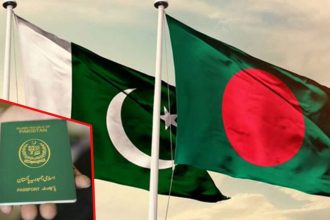Islamabad: Pakistan is considering a Jordanian offer to buy sixteen used F-16 jets in lieu of the eight advanced fighters it could not buy from the United States because of a financing row, but officials fear Washington could still throw a spanner in the works.
The case for the purchase of F-16s from the US is closed, “we are now going for a third party transfer of F-16s and have an offer from Jordan”, Defence Secretary retired Lt Gen Alam Khattak told a joint sitting of the Senate committees on defence and foreign affairs, which had been asked by Senate Chairman Raza Rabbani to review the current state of Pak-US ties and suggest the way forward.
The fiasco over procurement of F-16s, which started with Congress blocking the funding of the sale from the US government’s Foreign Military Financing Programme, brought into focus the underlying strains in Washington-Islamabad ties because of Pakistan’s alleged inadequate action against the Taliban, Haqqani network and Lashkar-i-Taiba and concerns over the scope and pace of development of its missile and nuclear programme.
Pakistani officials contend that the reasons for which US Congress withheld the financing were non-negotiable. However, the episode has forced the government to rethink its strategy of not having lobbyists in Washington and a couple of lobbying firms are expected to be hired shortly for the country’s image correction and improving relations with Congress.
Secretary Khattak conceded that the used Block-30 F-16s being offered by Jordan were not of the same quality and standard as the Block-52 that were originally intended to be bought from the US.
The Jordanian aircraft, which were manufactured in 1988/90 and upgraded in 2001/02, may have to be upgraded again to meet Pakistan Air Force’s current demands. But Pakistan, after losing the opportunity to buy new jets from the US, may immediately need them to replace the Block-15 F-16s currently in PAF’s inventory, which are due to be retired in the next couple of years.
Pakistan had earlier in 2014 bought around a dozen F-16s from Jordan, which has been modernising its fleet.
The defence secretary observed that for the state-of-the-art fifth generation fighters Russian and French markets would have to be explored.
Another defence ministry official Rear Admiral Mukhtar Khan, however, said the US had so far not objected to the deal with Jordan, but under the current environment getting American approval for the sale, a mandatory requirement, would not be easy to manage.
Adviser to the Prime Minister on Foreign Affairs Sartaj Aziz told the meeting that the government was right in not accepting the US conditions. “If the conditions affect national interest, it is better not to accept them. It was an issue of choices,” he contended while deliberating on the reasons that led to the cancellation of the F-16 deal with the US.
The Haqqani network, he said, was not a simple issue and could have caused a blowback. Moreover, he noted, the matter was linked to the border management, which the Afghan government had been resisting.
Mr Aziz further said the US had been conveyed that Pakistan would respond to the increasing imbalance in the region because of the Indo-US defence cooperation through maintaining its strategic deterrence.
He said the move for appointment of a lobbyist had been started and short-listing of prospective firms was being done.
The government has so far remained averse to hiring the lobbyist. The military, in view of the intended defence procurements including the F-16s, had last year advised the government to hire a lobbying firm, but the proposal was shot down ostensibly because of apprehensions that the lobbyist may be used by the military for its own promotion.
Foreign Secretary Aizaz Chaudhry in his testimony said that there could be no compromise on the nuclear programme and blamed the US for causing a setback to Afghan reconciliation efforts by acting in haste and eliminating Afghan Taliban chief Mullah Akhtar Mansour in a drone attack.
A number of members of the committees differed with the government explanation on not acting against the Haqqani network and Taliban.
Farhatullah Babar of the PPP said the meeting should be an occasion of introspection rather than bravado.
He regretted that after the killing of Mullah Mansour jihad was again flaunted as an instrument of policy with the Difa-i-Pakistan Council, a conglomerate of radical groups, being allowed to hold rallies.
He worried that isolation would be Pakistan’s destiny unless a course correction was undertaken.
Javed Abbasi, retired Brig John Kenneth Williams, Karim Khawaja and retired Lt Gen Salahuddin Tirmizi too expressed their concerns.
Chairman of the Defence Committee Mushahid Hussain Sayed, who co-chaired the meeting with Chairperson of the Foreign Affairs Committee Nuzhat Sadiq, said that a strategic shift in the US policy towards the region was visible.
He believed that US actions like the killing of Mullah Mansour depicted confusion in its policy on Afghanistan.
He stressed the need for institutionally strengthening the Foreign Office so that institutional decision-making by the National Security Committee, the Defence Committee of the Cabinet and the Defence Council be promoted instead of a reactive ad hoc approach which drifts from crisis to crisis.





